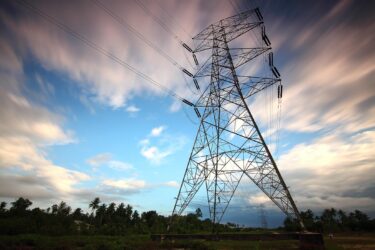Contents
Share this guide
What is EU Energy Efficiency Directive?
The EU Energy Efficiency Directive (EED) is a pan-European mandatory compliance scheme obligating large EU final customer organisations to complete mandatory independent energy audits and reporting at least every four years. Audits must result in a list of recommendations for reducing energy consumption.
The EED is enshrined in EU law and each EU Member State has its own. Although the schemes are similar, there are some minor variations between countries’ in-scope qualification definitions and project delivery methodologies.
EED Member States each have an indicative national energy efficiency target which is based on either primary or final energy consumption, primary or final energy savings, or energy intensity.
The purpose of EED is to ensure that in scope organisations complete energy efficiency audits to identify decarbonisation opportunities and to encourage decarbonisation across business sites and wider organisations to contribute towards the national energy efficiency targets.
Eligibility
While there are some minor differences amongst EU Member States regarding how they determine if a large organisation is deemed in-scope, the criteria is broadly similar to the below:
- Employs more than 250 people in a EU nation state
- Has an annual turnover in excess of €50m and/or a balance sheet over €43m
What are the benefits of compliance?
The legislation opens businesses up to the often-missed opportunity of energy efficiency. A comprehensive EED compliance program can drive energy efficiency savings, increase performance capabilities, and eliminate reputational risk. The opportunities this presents far outweigh the costs.
Our approach
If you have operations throughout Europe, we can develop a consolidated EED approach, identifying opportunities that can be rolled out across your organisation to gain maximum benefit from the compliance process. Our EU wide coverage then allows us to manage programs of work simultaneously across EU member states.
1. Screening for countries to understand if your organisation is deemed in-scope
Anthesis is a global business, operating in more than 40 countries. With coverage across all EU Member States, we will help you determine in which countries you are deemed in-scope of the EED regulations.
2. Complete energy audits across the countries where you have a requirement
BS EN 16247 energy audits will be completed, which is recognised as the best practice standard. Detailed energy efficiency audits will occur across your qualifying portfolio, in any country where this is required. This will identify a suite of opportunities for energy efficiency and decarbonisation. Whilst this is the minimum qualifying standard for audits, it is recommended to complete audits that go beyond compliance criteria to an investment grade proposition equivalent to ASHRAE level 2 or 3.
Transport activities often fall within scope of the audit requirement. Therefore, depending on the nature of your business, a site-based or desk-based audit of transport operations would be conducted, to identify opportunities for energy efficiency improvements and reduced emissions from transport.
3. Energy efficiency recommendations
Anthesis will produce a comprehensive list of cost-effective, practical, energy efficiency measures for review covering all areas of significant energy consumption. This will span all countries in which you have an obligation to comply and will be extrapolated to include any sites which were not visited for the physical energy audit. Recommendations would also be provided for transport operations, if a transport audit is required to be carried out.
4. Produce EED compliance report and prepare evidence pack
Anthesis will create a compliant EED Assessment Report, for each country in which you have an obligation, detailing the audits undertaken, listing the recommendations and with a full supporting evidence pack ready for submission to the member state auditors, agent or ministry to satisfy the regulatory guidance .
We have a skilled team of Chartered Mechanical, Civil and Electrical Engineers supported by Quantity Surveyors and commercial specialists that have supported major corporate clients with the delivery of tangible programmes of decarbonisation leading to substantial energy and carbon savings, cost savings, security of supply risk reduction and regulatory compliance. We have supported over 200 organisations to become compliant with these regulations.
